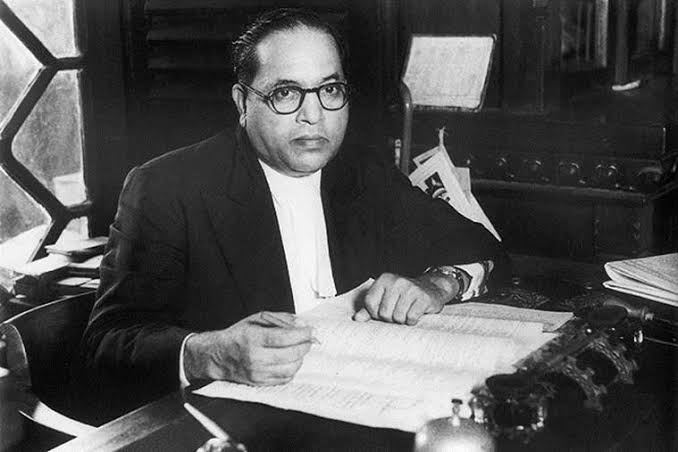As India prepares to celebrate Dr. B.R. Ambedkar’s 134th birth anniversary on April 14, 2025, the architect of the Indian Constitution looms large over a remarkable transformation unfolding in Jammu and Kashmir. Ambedkar, a fierce advocate for equality and democratic principles, famously opposed special provisions like Article 370, arguing they undermined national unity. His vision of a democratic India rooted in liberty, equality, and fraternity finds an unexpected echo today in the Kashmir Valley, where separatist groups, once staunchly opposed to the Indian Constitution, are renouncing their past and pledging allegiance to it. Yet, this historic shift is met with a curious silence from mainstream political parties and a media that seems to have shifted its lens, exposing society’s double standards in amplifying dissent but ignoring surrender.
For nearly 35 years, the All Parties Hurriyat Conference, an amalgam of 26 separatist outfits formed in 1993, stood as a symbol of resistance against India’s constitutional framework in Jammu and Kashmir. Groups like the Jammu and Kashmir Islamic Political Party, Muslim Democratic League, Kashmir Freedom Front, Democratic Political Movement, and the women-led Khawateen Markez championed self-determination, often with pro-Pakistan or pro-independence rhetoric. Their calls for strikes and protests dominated headlines, with even brief statements splashed across front pages as proof of their influence. At their peak, they could paralyze the Valley, drawing thousands to the streets and enforcing election boycotts that saw turnouts as low as 10% in the 1990s.
But the landscape has changed dramatically since August 5, 2019, when the abrogation of Article 370 stripped Jammu and Kashmir of its special status. The Indian government’s subsequent crackdowns—banning groups like Jamaat-e-Islami, freezing assets, and jailing leaders like Yasin Malik—have tightened the noose around separatist networks. By 2024–2025, the Hurriyat has unraveled, with at least 11 constituents publicly dissociating. On April 8, 2025, three more groups—Jammu Kashmir Islamic Political Party, Muslim Democratic League, and Kashmir Freedom Front—declared their allegiance to India’s Constitution, a move hailed by Union Home Minister Amit Shah as a “demonstration of the people’s trust” in a unified Bharat.
I spoke to Fareeda Behenji, former chief of Khawateen Markez, who renounced separatism in 2024. “For decades, we believed in a cause, but it brought only suffering,” she said, her voice heavy with reflection. “Ambedkar’s Constitution promises equality and dignity—values we now see as our future. The youth want jobs, not slogans.” Her words resonate in a Valley where voter turnout hit 63% in the 2024 assembly elections, signaling a shift toward democratic participation.
Yet, this capitulation, which aligns with Ambedkar’s vision of a cohesive democratic society, has been met with indifference by the media and mainstream parties like the National Conference (NC), People’s Democratic Party (PDP), and Indian National Congress (INC). In the 1990s, a two-line Hurriyat statement calling for a strike would dominate news cycles, dissected by analysts and amplified by editorials. Today, their surrender barely makes the inside pages. “It’s as if our relevance only mattered when we opposed India,” said Khawaja Firdous, a former Democratic Political Movement leader, during an interview in Srinagar. “Now that we embrace the Constitution, we’re discarded.”
This double standard reflects a deeper societal bias. Separatist defiance was sensational, feeding narratives of conflict that sold papers and shaped discourse. Their surrender, however, lacks the drama, revealing a media more invested in chaos than reconciliation. Trending posts on X capture this sentiment: one user wrote, “Hurriyat’s surrender is historic, but where’s the coverage? Media only chased their protests, not their defeat.” Another posted, “Ambedkar’s Constitution wins in Kashmir, yet the silence is deafening.”
The silence of NC, PDP, and INC is equally telling. These parties, which have long navigated Kashmir’s complex political terrain, have not claimed credit for the Hurriyat’s capitulation or engaged with the development. Their reticence likely stems from strategic caution. The NC and PDP, rooted in the Valley’s mainstream politics, have historically competed for legitimacy against the Hurriyat’s separatist pull. Acknowledging the Hurriyat’s surrender could alienate their base, which includes voters sympathetic to softer separatist sentiments. “We focus on governance, not separatist dramas,” an NC spokesperson told me off-record, dodging questions about their stance.
The INC, meanwhile, faces a national dilemma. Aligning with the Hurriyat’s defeat risks tying them to the BJP’s muscular policies in Kashmir, which they’ve criticized. Yet, ignoring it leaves them disconnected from a narrative of democratic triumph. A senior INC leader in Delhi remarked privately, “We’re in a bind. Celebrating this plays into Modi’s hands, but silence makes us irrelevant.” Their collective restraint suggests a refusal to own a victory that aligns with Ambedkar’s democratic ideals but carries political baggage.
The government’s security measures post-2019 have undeniably weakened the Hurriyat. Arrests, financial curbs, and bans have dismantled their networks, leaving leaders like Fareeda Behenji and Firdous feeling irrelevant in a new democratic setup. Yet, their embrace of the Constitution is not merely coercion—it reflects a broader shift. Young Kashmiris, tired of conflict, are voting in droves and demanding development. The Hurriyat’s old playbook of protests and boycotts no longer resonates.
Ambedkar, who envisioned a society free of hierarchy and exclusion, would likely see this as a step toward social democracy. His insistence on equality before the law and mutual respect among citizens finds echo in a Kashmir where separatists now seek inclusion within India’s framework. But the irony is stark: a society that once amplified their defiance now discards their submission, exposing a hypocrisy Ambedkar often critiqued in his fight against caste and privilege.
As we honor Ambedkar on April 14, Jammu and Kashmir’s evolving story reminds us of his enduring relevance. The Hurriyat’s surrender is a testament to the Constitution’s resilience, but it also challenges us to confront our biases. Will we celebrate those who embrace democracy, or continue to fetishize conflict? The answer lies in whether we can embody Ambedkar’s call for fraternity, not just in Kashmir, but across a nation still grappling with its contradictions.



